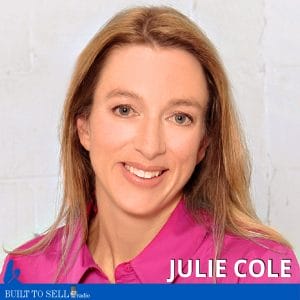About this episode
Julie Cole and her partners built Mabel’s Labels into a $10 million business before acquisition in early 2016. Cole and her partners were able to add hundreds of thousands of dollars to their sell price using this negotiation technique.
Part of what made Mabel’s Labels attractive to Avery was the brand Cole and her partners had created. To see how your brand will impact the value of your business, get your Value Builder Score and turn to the section in the report titled “Monopoly Control”.

About Our Guest
Cole is a co-founding VP of Mabel’s Labels, the leading provider of labels for the stuff kids lose! Mabel’s Labels started as a basement start-up and was grown into an award-winning, celebrity-endorsed and international phenomenon. As company spokeswoman, Cole is well-known amongst North American entrepreneurs and her dynamic personality has led to numerous speaking engagements, from university business classes to TV appearances, including NBC’s The Today Show, HLN’s Raising America, Canada AM, Breakfast Television, The Marilyn Denis Show, Metro Morning, CH Morning Live, Better TV, The Mom Show, Fox 5 San Diego and WGN’s Midday. She is a syndicated blogger for The Huffington Post, modernmom.com, PTPA Media, Yummy Mummy Club, and her company’s Mabelhood blog. Her writing has also appeared in Chicken Soup For the Soul: Power Moms. Mabel’s Labels has been featured everywhere from The


